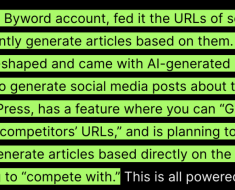NLP Sheds Light on Heart Failure Detection
Heart failure, particularly when it is related to left ventricular ejection fraction (LVEF) ≥50%, is a significant health concern. A recent study discussed the use of natural language processing (NLP) to identify heart failure in hospital records. It revealed that of the individuals with LVEF ≥50%, 8.3% had a clinician-assigned diagnosis of heart failure with preserved ejection fraction (HFpEF), while a staggering 75.4% met the European Society of Cardiology (ESC) criteria and faced a higher 5-year mortality rate. These findings underscore the potential of NLP in enhancing heart failure detection.
The Increasing Impact of NLP on Clinical Care
NLP techniques are revolutionizing clinical care, with applications ranging from patient and clinician administration to research. The most advanced NLP methods are rooted in large language models (LLMs), primarily used for text generation tasks but equally effective for information extraction and prediction tasks. In cardiology, NLP techniques are increasingly being used to improve the use of unstructured data in electronic health records (EHR), offering novel strategies to inform patients, support cardiologists, and improve data collection for cardiology-focused clinical research.
Deep Neural Network Prediction Models in Heart Failure
Machine learning algorithms are playing a pivotal role in predicting critical events in heart failure patients. A recent study proposed a deep neural network prediction model, the Contrastive learning and Attention mechanism (CLANet), which showed a 2-10% improvement over traditional methods. The use of historical Electronic Health Records (EHRs) is key to predicting the risk of critical events in heart failure patients, and machine learning algorithms are providing an edge in this area.
Machine Learning Algorithms in Ischemic Heart Disease
A systematic review of the most accurate machine learning algorithm used to predict ischemic heart disease highlighted the potential of this technology in cardiology. With an estimated 18 million deaths due to heart diseases in 2019 alone, the need for accurate and timely diagnosis is urgent. Machine learning algorithms can assist clinicians in interpreting patient data and implementing optimal algorithms for their datasets, leading to improved quality of care. Ischemic heart disease, characterized by necrosis or complete occlusion of the main coronary artery arteries, can often go undetected until a patient experiences an acute myocardial infarction. Here, machine learning algorithms can be invaluable.
Artificial Intelligence for Heart Stroke Prediction
Machine learning (ML) and deep learning (DL) techniques are also being utilized for heart stroke prediction. A model developed using the Stroke Prediction Dataset achieved an impressive accuracy rate of 95% with the ANN model. The model’s comprehensibility for healthcare practitioners was a highlight of this research, demonstrating the potential of ML and DL techniques in predicting heart stroke and augmenting healthcare delivery.
Conclusion
The integration of NLP and machine learning in cardiology offers promising avenues for enhanced disease detection and patient care. By leveraging these technologies, clinicians can harness unstructured data, accurately predict heart disease, and inform treatment strategies, ultimately improving patient outcomes. As the field of cardiology continues to evolve, the role of technologies like NLP and machine learning is set to be pivotal, ushering in a new era of patient care and health outcomes.



